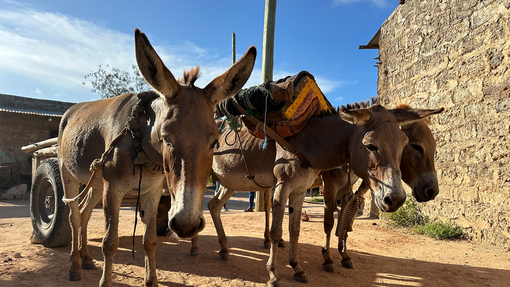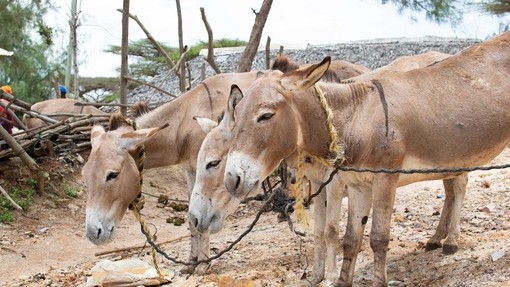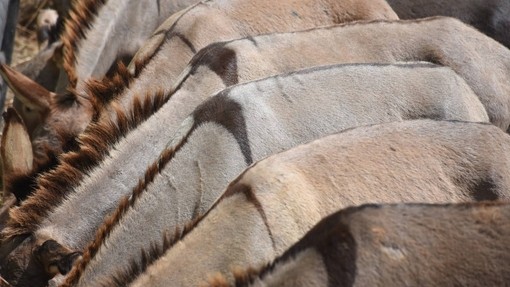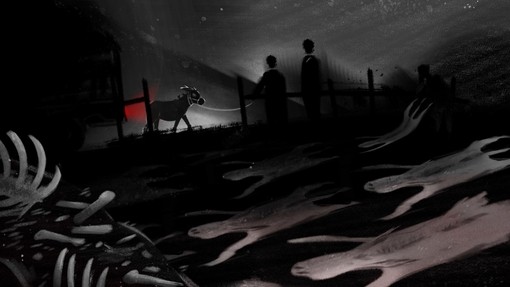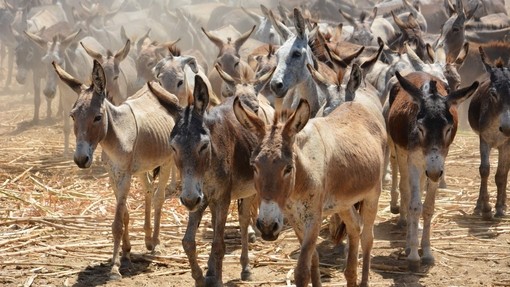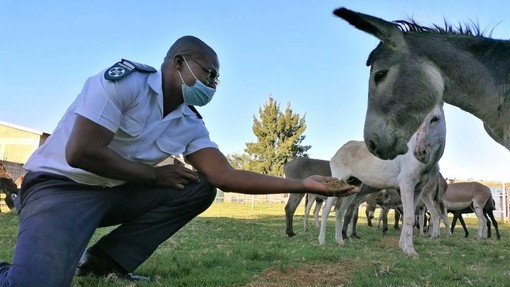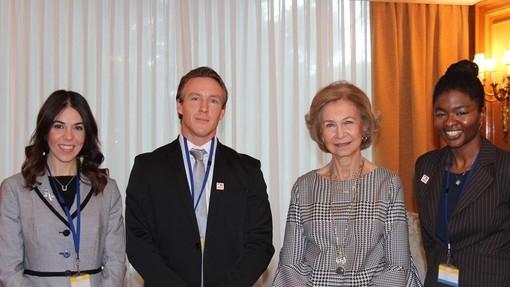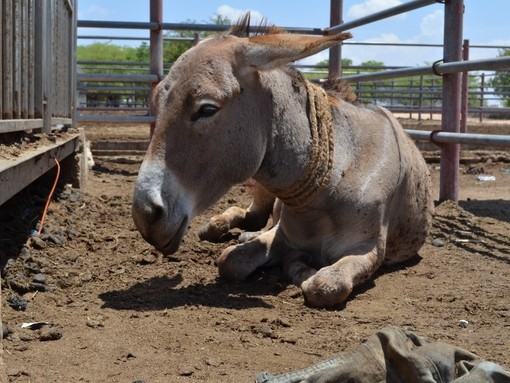
Minister for Livestock and Fisheries declare ban
In a budget speech to Parliament, the minister noted that Tanzania’s current donkey population is estimated at 650,000, but recognised that there is a real risk of donkeys falling into extinction if they continue to be slaughtered for their skins.
He has advised investors in the donkey trade to use current infrastructure to trade in other livestock animals instead.
Ian Cawsey, Director of Policy, Advocacy and Campaigns at The Donkey Sanctuary, said: “It’s not often we have good news to share about the donkey skin trade but this is a major victory.
“The rejection of donkey slaughter by Tanzania adds a powerful voice to the growing number of countries declaring their donkeys are not for sale for slaughter. It means that the 650,000 donkeys in a country, which support millions more people, will no longer be at risk of slaughter for their skins.
“Since 2016, The Donkey Sanctuary has been working with partner organisations in Tanzania in East Africa to help communities protect their donkeys from theft for the trade and also to expose the truly horrendous animal welfare issues around their slaughter – some of the worst cases we have ever seen.”
Tanzania’s stand against the skin trade mirrors action taken by Kenya, Nigeria and a number of West African countries to prohibit the slaughter of donkeys for their skins. Nigeria has gone so far as to declare its donkeys an endangered species owing to their unsustainable slaughter.
The cruel donkey skin trade is growing to meet the rising demand for ejiao, an ingredient in traditional Chinese medicines which is produced using the collagen from the donkeys’ skins.
More than 4.8 million donkeys, including pregnant mares and foals, are being trafficked and killed for their skins each year.
Our report published in May 2022 highlighted the increasing evidence of criminal involvement in the donkey skin trade, with online traders selling donkey skins alongside illegal items such as ivory, rhino horn and drugs.
Ian added: “I hope that other African countries, including South Africa, Botswana and Egypt, who allow the trade to operate, will reconsider their support for donkey slaughter and make similar moves to protect their national donkey populations for the benefit of their citizens.”
Share this page
Tags
- News

